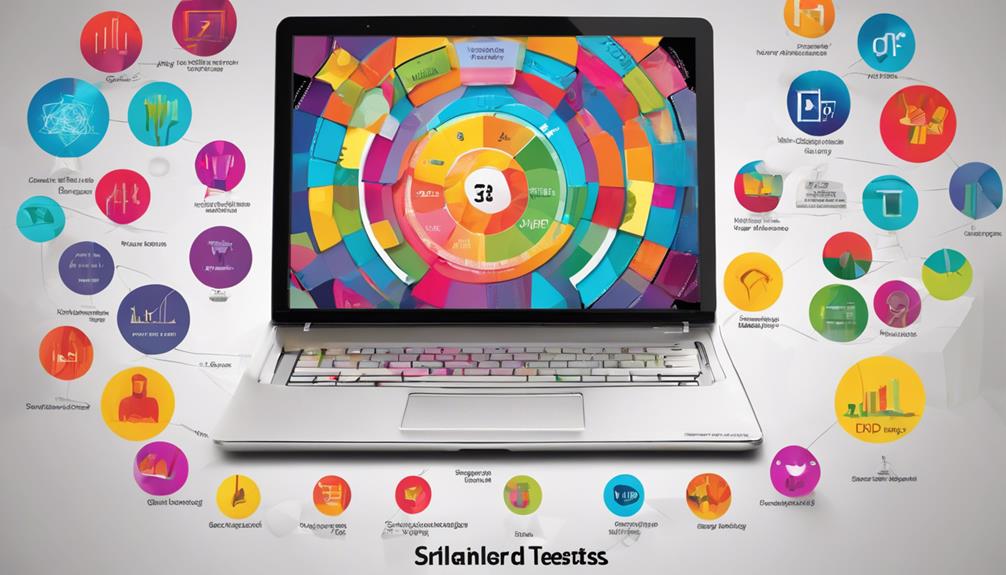Studies indicate that introverts constitute approximately 30-50% of the population, highlighting the importance of comprehending their behavioral patterns, particularly in recognizing their emotional states. Noticing when an introvert is displeased with you can be nuanced but vital for sustaining a positive relationship.
By recognizing the unique signs and cues they display, you can navigate interactions more effectively. But how exactly can you decipher these signals? Stay tuned to uncover the insightful steps to determine if an introvert is harboring anger towards you.
Key Takeaways
- Watch for subtle cues of anger like quiet withdrawal and lack of focus.
- Recognize behaviors such as taking frustrations out on objects and withdrawing to seek solitude.
- Pay attention to nonverbal cues like avoiding eye contact and isolating from social interactions.
- Understand how introverts express anger through silence, disengagement, and creative outlets.
Common Behaviors of Angry Introverts
When angry, introverts commonly exhibit behaviors such as taking out their frustrations on inanimate objects or projecting their anger onto technology. This behavior can manifest as knocking items over, bumping into things accidentally, or even crashing their technology devices in a fit of frustration. The response can seem disproportionate to the trigger, with introverts overreacting to minor setbacks due to their internalized feelings of anger.
Moreover, angry introverts tend to become pessimistic and withdraw to a private place to seek solitude when upset.
These actions serve as outward expressions of the turmoil introverts may be experiencing internally. By observing these behaviors, one can better understand when an introvert is upset and in need of space to process their emotions. Recognizing the signs of an angry introvert, such as their tendencies to project onto objects or technology, can lead to more effective communication and support for these individuals during times of distress.
Nonverbal Cues of Upset Introverts

A key indicator of upset introverts is their tendency to avoid direct eye contact when experiencing anger towards someone. This avoidance of eye contact is a subtle yet powerful form of body language that introverts often use to create emotional distance when they're upset.
In addition to avoiding eye contact, upset introverts may also go quiet, expressing their anger through their silence rather than through words. This quietness can be a sign that something you have done has made them feel upset or frustrated.
Furthermore, upset introverts may isolate themselves from everyone, withdrawing from social interactions as a way to cope with their anger towards you.
- Avoiding eye contact
- Going quiet
- Isolating themselves from everyone
- Expressing their anger through silence
Signs of Frustration in Introverts
Introverts commonly exhibit signs of frustration through nonverbal cues such as silence and withdrawal. When an introvert is feeling uncomfortable or nervous around others, they may avoid talking and make an effort to spend more time alone. This desire for solitude can lead them to avoid social gatherings and interactions where they might've to express their frustrations verbally. One of the key signs an introvert is frustrated is their unusual quietness and disengagement from conversations or activities.
Additionally, introverts may show signs of frustration through their expression. A furrowed brow, tense posture, or lack of eye contact can indicate their inner turmoil. It's crucial to understand that introverts process emotions internally and may choose creative outlets like art or writing to channel their frustrations instead of openly discussing them. Recognizing these subtle signs can help in offering support and understanding to an introverted individual experiencing frustration.
How Introverts Express Anger

Navigating the realm of understanding how introverts express anger involves recognizing subtle cues that differ from extroverted displays of emotion. Introverts may exhibit their anger in various ways, such as:
- Quiet and Withdrawn: When upset, introverts may become unusually quiet and withdrawn, preferring solitude to social interactions.
- Disengagement and Lack of Focus: They might show signs of disengagement and a lack of focus, finding it challenging to concentrate when angry.
- Creative Outlets: Introverts may turn to creative outlets like art or writing to express their anger in a productive manner.
- Avoidance Behavior: When upset, introverts may display avoidance behavior, such as canceling plans or not returning calls, as a way to manage their emotions.
Understanding these subtle cues can help in deciphering an introvert's emotions and responding appropriately.
Recognizing Anger in Introverted Individuals
Recognizing signs of anger in introverted individuals involves observing subtle cues that deviate from extroverted displays of emotion. Angry introverts may exhibit behaviors such as quiet withdrawal, becoming unusually reserved or quiet, and showing disengagement by lacking focus or appearing preoccupied. Social avoidance, especially avoiding social gatherings or interactions, can also indicate anger in introverts. Understanding introverts' preferred methods of expressing anger, such as through creative outlets like art or writing, can help in recognizing their emotional state.
When an introvert is mad at you, they may display signs of not liking you, such as a lack of effort in getting to know you or feeling discomfort in your presence. To maintain relationships with introverts, it's essential to be sensitive to their cues and respect their need for space and solitude. Making eye contact, being patient, and avoiding anything that might escalate the situation are crucial when an introvert feels angry.
Frequently Asked Questions
How Do You Tell if an Introvert Is Mad at You?
When an introvert is upset, they may display subtle signs like avoiding eye contact, giving brief answers, or withdrawing. Their behavior might seem distant, and they may prefer solitude.
Lack of interest in making plans or physical contact can indicate their displeasure. Pay attention to these cues to understand if an introvert is mad at you.
Understanding their non-verbal signals is key to deciphering an introvert's feelings.
What Happens When You Hurt an Introvert?
When you hurt an introvert, they may retreat into themselves, becoming distant or aloof. They might need time alone to process their emotions and regain their sense of security.
Introverts may not express their hurt openly, preferring to internalize their feelings. It's essential to give them space and time to heal, respecting their need for solitude and understanding their unique way of handling emotional pain.
When an Introvert Is in a Bad Mood?
When introverts are in a bad mood, they often display behaviors that differ from their usual selves. They may become quiet, withdrawn, and disinterested in conversations or activities. Avoiding eye contact and providing minimal communication are common signs of their mood.
Introverts tend to seek solitude and alone time when upset. Short responses and lack of engagement can indicate their dissatisfaction or irritation. Understanding these cues can help navigate interactions with introverts effectively.
How Do You Know if an Introvert Is Jealous?
When introverts are jealous, they may not directly express it. Instead, they might exhibit subtle signs like increased sensitivity, possessiveness, or passive-aggressive behavior.
Their jealousy could lead them to withdraw or avoid situations that trigger these feelings. Understanding these nuanced cues can help you recognize when an introvert is experiencing jealousy, even if they don't overtly communicate it.
Are the Signs of an Abrasive Personality Similar to the Signs of an Introvert Being Mad?
When an introverted individual is mad, they may display some similar traits to someone with a 10 signs of abrasive personality. Both may exhibit withdrawal, silence, and passive-aggressive behavior. However, it’s important to differentiate between the two, as an introvert being mad may not necessarily indicate an abrasive personality.
Are the Signs of an Introvert Liking You Similar to the Signs of Them Being Mad at You?
Trying to gauge an introvert’s feelings can be tricky, but signs introvert likes you may include paying extra attention, initiating deep conversations, and making efforts to spend time with you. These signs are typically different from the clues indicating an introvert is mad, such as avoiding eye contact and giving short, curt responses.
Conclusion
In conclusion, recognizing when an introvert is upset can be challenging. By paying attention to their behaviors and cues, we can better understand their emotions and address any underlying issues.
One interesting statistic to note is that studies have shown that introverts are more likely to express their anger through creative outlets such as art or writing. This highlights the importance of recognizing and respecting their unique ways of processing emotions.
Felicity, our Author, pens in-depth articles and guides that delve into the heart of personal discovery. Her narrative-driven approach weaves together theory, practice, and personal anecdotes, making the journey of self-exploration both relatable and inspiring. Felicity’s contributions help illuminate the path for those seeking a deeper understanding of themselves and their relationships.










